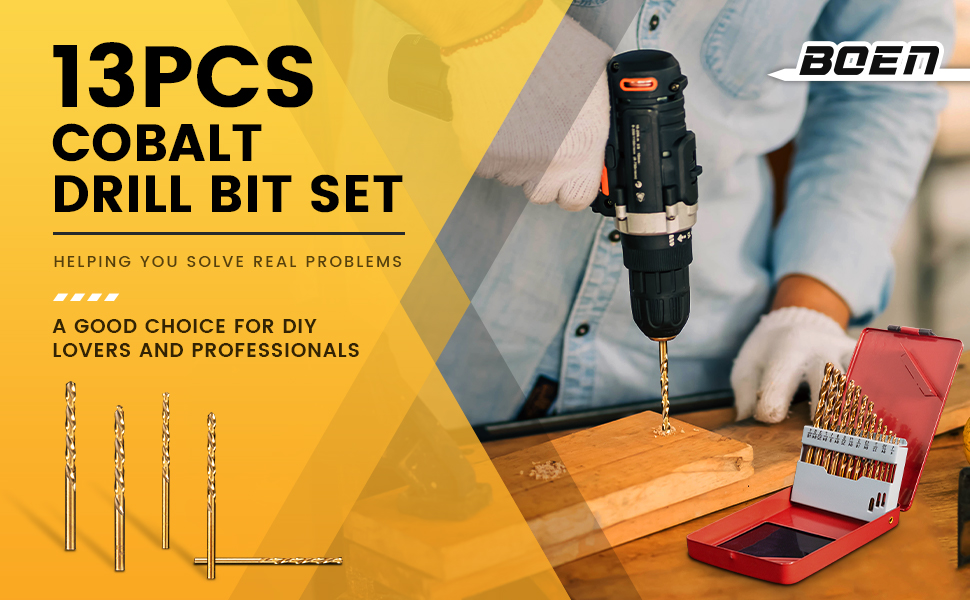When it comes to drilling tasks, the type of drill bit you select can significantly impact the quality and efficiency of your work. Reversible drill bits, known for their unique design that allows for both drilling and reverse operations, are gaining popularity among both DIY enthusiasts and professionals. However, with a plethora of options available on the market, choosing the right reversible drill bit for your specific needs can be overwhelming. This article aims to simplify that process by breaking down the essential factors to consider when selecting a reversible drill bit.
Understanding Reversible Drill Bits

Before diving into selection criteria, it’s essential to understand what reversible drill bits are and how they function. These bits are designed to drill holes and extract screws or fasteners by reversing the rotation direction. This dual functionality makes them particularly useful in various applications, from woodworking to metalworking.
Types of Reversible Drill Bits

Reversible drill bits come in several types, each suited for different materials and applications. Here are some common types:
- Twist Bits: Ideal for drilling into wood, plastic, and light metals.
- Brad Point Bits: Used mainly for wood; they provide clean, precise holes.
- Spade Bits: Suitable for larger holes in wood but not for deep drilling.
- Step Bits: Perfect for creating holes of various sizes in thin materials.
- Carbide Tipped Bits: Designed for hard materials like masonry and concrete.
Factors to Consider When Choosing a Reversible Drill Bit
Choosing the right reversible drill bit involves considering several factors that relate to the intended use and specific requirements of your project. Below are the key factors to keep in mind:
1. Material Compatibility
The material you plan to drill into is the most critical factor in selecting a reversible drill bit. Different materials require different types of bits:
- Wood: Opt for brad point or twist bits for clean cuts.
- Metal: Use high-speed steel (HSS) or cobalt bits for durability.
- Masonry: Choose carbide-tipped bits for effective drilling.
2. Size and Diameter
Drill bits come in various sizes, and the diameter of the bit should match the size of the hole you wish to create. Consider the following:
- For small pilot holes, a smaller diameter bit (1/16″ to 1/8″) is suitable.
- For larger holes, select bits that range from 1/4″ to 1″.
- Step bits can be used for versatility in size, allowing for multiple hole sizes with one bit.
3. Bit Length

The length of the drill bit impacts its ability to reach deeper materials. Longer bits are necessary for drilling through thick materials, while shorter bits are sufficient for shallow projects. Consider your specific project requirements:
- Standard lengths are typically 3 to 6 inches.
- Extended lengths can go up to 12 inches for deep drilling.
4. Coating and Material Quality

The coating on a drill bit can enhance its performance and durability. Here are some common coatings:
- Black Oxide: Increases corrosion resistance and durability.
- Titanium Nitride (TiN): Offers heat resistance and reduces friction.
- Cobalt: Improves hardness and wear resistance, especially for metal drilling.
5. Brand Reputation and Reviews

When selecting a reversible drill bit, it’s crucial to consider the brand’s reputation. Well-known brands often provide higher quality products backed by customer reviews. Here are a few reputable brands to consider:
- DeWalt
- Bosch
- Irwin
- Makita
- Milwaukee
Application-Specific Considerations

Different applications may require specific features in a reversible drill bit. Here are some common scenarios and considerations:
1. Woodworking
For woodworking, brad point bits are recommended due to their ability to create clean holes without tearing the wood fibers. If you need to remove screws, ensure the reversible drill bit is compatible with your screw types.
2. Metalworking
When working with metals, prioritize high-speed steel or cobalt bits. These materials can withstand higher temperatures and provide better durability. Also, consider using cutting oil to prolong the life of the bit.
3. Masonry and Concrete Work
In masonry applications, carbide-tipped bits are essential for drilling through hard surfaces. Make sure to select bits specifically designed for masonry to prevent breakage and ensure efficiency.
Case Studies: Real-World Applications
To better illustrate the importance of choosing the right reversible drill bit, let’s look at a couple of case studies:
Case Study 1: Home Renovation
A homeowner was undertaking a renovation project that involved both wood and metal elements. By selecting a versatile set of reversible drill bits, including brad point bits for wood and HSS bits for metal, they were able to complete their tasks efficiently, saving time and reducing frustration.
Case Study 2: Industrial Application
A manufacturing plant faced downtime due to frequent drill bit failures. After evaluating their usage, they decided to invest in high-quality cobalt bits for their metal drilling tasks. The change resulted in a 40% decrease in drill bit replacement frequency, leading to significant cost savings.
Statistics and Trends
According to a report from the Freedonia Group, the global market for drill bits is expected to reach $8.2 billion by 2025, driven by the construction and manufacturing sectors. This trend underscores the importance of selecting the right drill bits, as they directly impact productivity and project costs.
Choosing the right reversible drill bit is crucial for achieving optimal results in your drilling tasks. By considering factors such as material compatibility, size, bit length, coating, and brand reputation, you can make an informed decision that meets your specific needs. Remember to assess your application requirements and select bits designed for your particular tasks. By doing so, you’ll enhance your efficiency, reduce frustration, and achieve superior results in your projects. Investing time in selecting the right drill bits will ultimately pay off in the quality of your work and the longevity of your tools.